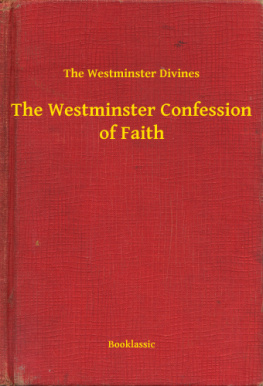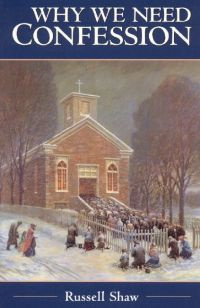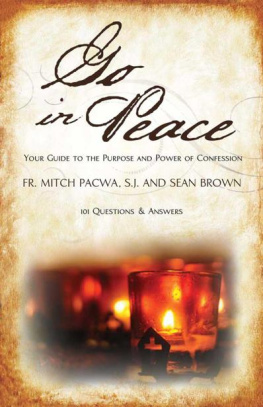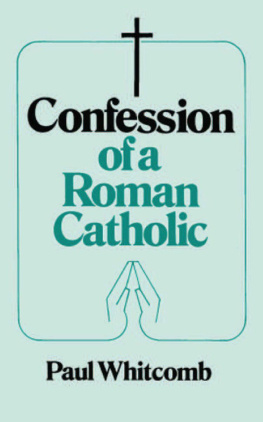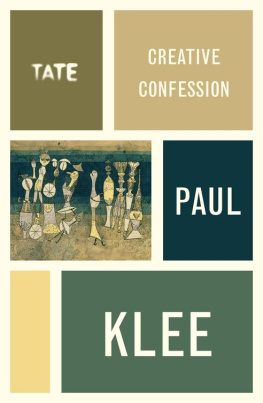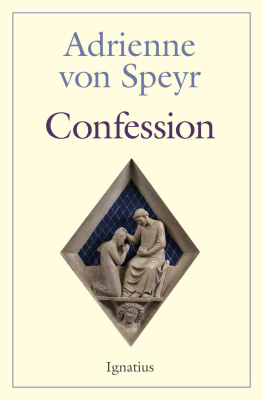the art of confession
Renewing Yourself Through the Practice of Honesty
Paul Wilkes
Workman Publishing New York
For my beloved Tracy, for whom honesty is unnervingly natural
Copyright 2011 by Paul Wilkes
All rights reserved. No portion of this book may be reproducedmechanically, electronically, or by any other means, including photocopyingwithout written permission of the publisher. Published simultaneously in Canada by Thomas Allen & Son Limited.
Library of Congress Cataloging-in-Publication Data is available.
eISBN 99780761168720
Workman books are available at special discounts when purchased in bulk for premiums and sales promotions as well as for fund-raising or educational use. Special editions or book excerpts also can be created to specification. For details, contact the Special Sales Director at the address below or send an e-mail to specialmarkets@workman.com .
Jacket design: Jean-Marc Troadec
Workman Publishing Company, Inc.
225 Varick Street
New York, NY 10014-4381
www.workman.com
ACKNOWLEDGMENTS
Deepest thanks to two exacting and excellent editors, Ruth Sullivan and Savannah Ashour; to Peter Workman, who championed the idea; and to my agent, John Thornton.
A lie has speed. But truth has endurance.
Edgar J. Mohn
The soul would have no rainbow
Had the eyes no tears.
John Vance Cheney
To become acquainted with oneself means also to understand preconsciously that the limits of our emotional life are drawn upward and downward much farther than we thought. This means, conventionally speaking, that we are unconsciously much more wicked, but also much better than we thought we were.
Theodor Reik,
THE COMPULSION TO CONFESS
contents
CHAPTER ONE
a confessional culture
CHAPTER TWO
the ancient balm
CHAPTER THREE
the birth of conscience
CHAPTER FOUR
seeking realignment
CHAPTER FIVE
praying backward through the day
CHAPTER SIX
confessing
CHAPTER SEVEN
do the next right thing
introduction
We are at liberty to be real, or to be unreal. We may
be true or false, the choice is ours. We may wear now
one mask and now another, and never, if we so desire,
appear with our own true face. But we cannot make these
choices with impunity. Causes have effects, and if we lie
to ourselves and to others, then we cannot expect to find
truth and reality whenever we happen to want them.
If we have chosen the way of falsity we must not be
surprised that truth eludes us when we finally come
to need it!
Thomas Merton
DEEP WITHIN EVERY human heart, there is the desire to be good.
That is the core assumption of this book. We all want to find and be our best selves, to go to bed each night at peace with who we are and how we acted that day. We want to be the kind of person we ourselves would want as a friend: trustworthy, dependable, fair. Yet often we failourselves and othersin ways both small and significant.
This universal desire has a quiet yet perceptible voice: It is our conscience, a mysterious force within that urges us toward good actions and away from the bad. Having a free will means we can choose to listen to this voice or not. As we have all experienced, we can deflect or even blunt our conscience and choose to act in ways that are not in keeping with our best selves. And we know the vague, disquieting feeling, or sometimes the overwhelming sensation, when we do this.
What can lift this burden and restore our humanity is confession, a word that will be used often on these pages. In my religious tradition, Catholicism, the word Confession has a very specific meaning. That is not what we will explore here. Instead, we will be looking at confession with a small c. This sort of confession may be directed to a higher power, but it is first and foremost a conversation with ourselves. In other words, you dont have to walk into a church to cleanse your soul. This book is not so much about public confession as it is about private honesty.
Confession, as we will see later, is at the very foundation of all the great faiths and spiritual disciplines. All honor its power and have addressed the need for personal confession. Confession is also a pillar of mental health, for confession is about self-examination. It demands something for which there is no substitute: that we be honest with ourselves.
Confession strips away the veil that we often cast over our actions, realigning our souls with what is best and truest in our natures. I use the word align, because when we betray ourselves (some would define this as sinning), we fall out of alignment. Until we acknowledgeconfessour souls remain confused and fragmented.
This kind of confession, which demands self-reflection and change, has little to do with the flood of confessional disclosures that characterize our ageon tell-all TV talk shows and social networking sites, even via an iPhone app for confession. In this time of Internet connectivity, amid the din of oversharing, we mistake spasms of self-revelation for honesty. Our inner voice is not so easily found and cannot be parsed into ten-second bursts. That voice needs time to find the right words to say and the right place to say them.
Because it has been so trivialized, confession has lost its power and vitality. To confess is considered foolish, weak, even corrosive to our self-esteem, unnecessary. Such an antiquated notion, some might say, of right and wrong. What a naive understanding of how things really work, what people are really like.
The truth is that confession, as I seek to redefine it in this book, is wise and strong and necessary, unburdening both the soul and the psyche to live a forthright, productive, and fuller life. Confession is not only for those who have committed some great public or private sin. For most of us, our little murdersour duplicities, the daily hurts, neglects, and carelessness we inflict upon others and upon ourselvesneed to be confronted and acknowledged.
When confession becomes a practice, a daily reevaluation of ones actionsan artits power continues to grow, instilling a new sense of confidence, a vision of what life truly can be and hold. Something as simple as a short, nightly examen, which Ill discuss in , can sort out the chaff from the wheat of the day, clearing the mind right then, and inculcate a habit of living an examined life.
Although the word seems to indicate it, confession is not about guilt. (Though I would argue that a certain amount of guilt is good and necessary, as it helps to regulate moral behavior.) Nor is confession about wallowing in ones shortcomings, stupid mistakes, even our most horrific actions.
A Massachusetts parish priest once told me, People who come to me confessing their faults and asking for help in dealing with lifes problems often say, I dont know how to cope with this; help me learn a skill. I dont like who I am; I want to be a better person. People may not use those exact words, but thats what they are saying. They know they are better than the sum of their mistakes.
Using confession to live honestly and consciouslythe goal in this bookis an art to be learned and a skill to be practiced. It is neither an easy fix nor a heal-all. Our brash modern optimism assumes that all can be made well if we only will it to be so, but human behavior is complex, requiring deeper thought and actual, sometimes painful recalibration.
Confession is, quite simply, an attitude. It is the cornerstone of the intentional life, not merely a clearing out of the debris, that which is bad or wrong in us, but a realignment of what is best in us, an intention to live a better life. It is building upon something strong and sure and ultimately reliable. Confession is about truth, and as Thomas Merton writes in the epigraph, what follows from an attitude of truth will not fail us.


